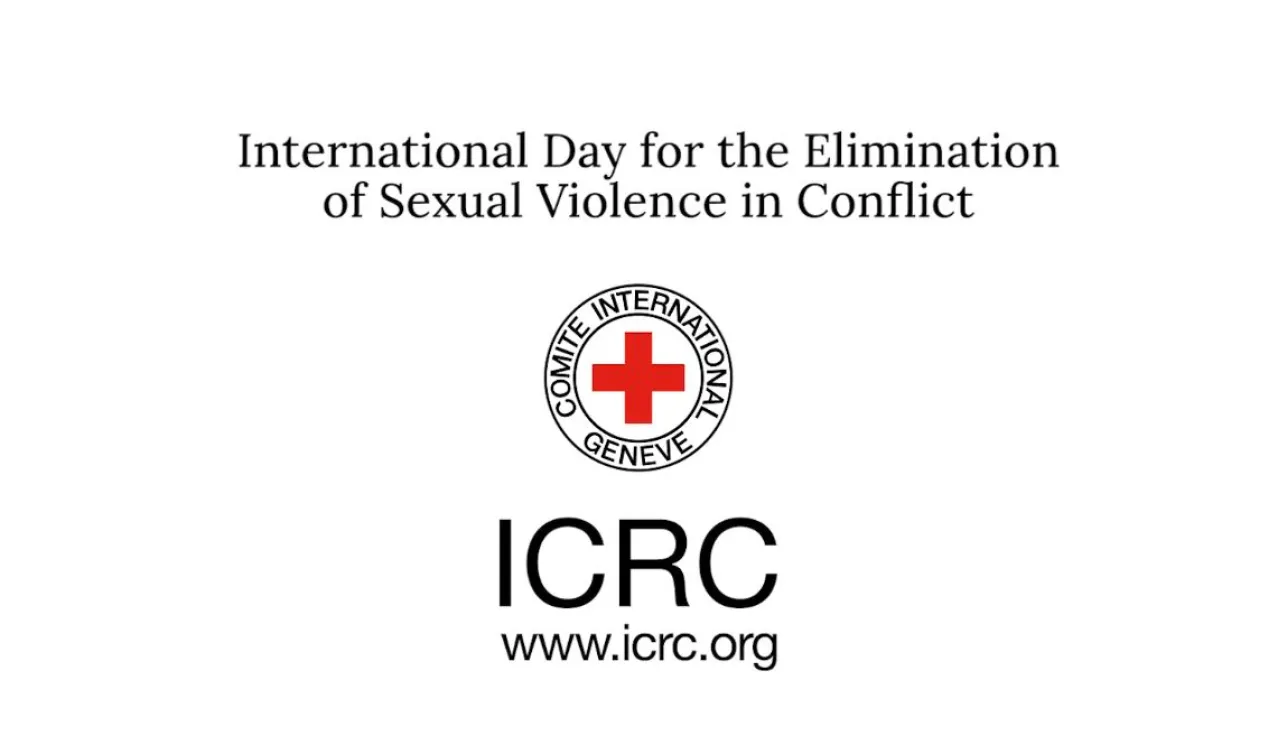ICRC: International Day for the Elimination of Sexual Violence 2021

The ICRC works to eliminate sexual violence in armed conflict, detention and other situations of violence.
We do so by engaging in high-level humanitarian diplomacy, addressing root causes and maintaining dialogue with arms carriers to prevent incidents of sexual violence. The means to achieve this is by ensuring that victims/survivors have access to all necessary services, and offering quality assistance and protection services to victims/survivors when possible.
In addition, we work with individuals and their communities to strengthen their resilience and mitigate risks of such violence.
In essence, the ICRC adopts survivor-centred and evidence-based approaches, and ensures holistic needs are met through multi-disciplinary coordination and understanding of the intersectional factors that inform a victim/survivor's needs.
In 2015, the United Nations proclaimed June 19 as the International Day for the Elimination of Sexual Violence in Conflict, aiming to "raise awareness of the need to put an end to conflict-related sexual violence, to honour the victims and survivors of sexual violence around the world, and to pay tribute to all those who have courageously devoted their lives to and lost their lives in standing up for the eradication of these crimes."
Today, many parts of the world are still experiencing the impact of COVID-19 pandemic, which has exacerbated sexual and gender-based violence against individuals and communities, both in non-humanitarian and humanitarian contexts.
In conflict-affected areas, where services and dedicated funds were already limited, the pandemic has worsened an already challenging situation – both in terms of an increase in incidents of sexual and gender-based violence (SGBV) and of making sure that survivors get the help they need.
We must work together to ensure everyone feels safe from sexual violence.#16Days pic.twitter.com/rmIkykMDBf
— ICRC (@ICRC) November 28, 2020
Evidence on the COVID-19 pandemic's impact on the prevalence and patterns of sexual violence in conflict and other situations of violence (where used by weapons bearers, or in nexus to the conflict) is still scarce and reports in some settings have even declined.
These statistics do not mean that the violence is not happening, instead they show that the issue has become more invisible in conflict and other settings (including domestic violence), due to the pandemic's impacts on available services but also due to the reduced access to support services imposed by lockdown and social distancing.
Despite the enormous challenges, the pandemic must not become a reason to overlook the urgent needs of the victims and survivors. If anything, States and humanitarian actors need to redouble their efforts to ensure the provision of adequate health care for their needs – both physical and mental, but also access to economic, social and legal support.
In particular, measures should be taken to ensure that sexual violence prevention and response services are inclusive and accessible to all, boys, girls, men and women including the most vulnerable individuals, such as persons with disabilities, people deprived of freedom, migrants, etc.
We are committed to continue our efforts to prevent, respond and mitigate the impact of sexual violence, acknowledging that the needs of victims/surivors are now greater than ever.
To honor the survivors and victims of sexual violence, we need to recognise that there is much work to be done to support them, and we all each have a role, big or small, to eliminate sexual violence.
We can all contribute to prevent and respond to sexual violence, and we want to engage on it. Building up on our internal multi-disciplinary expertise, but also enhancing and empowering local communities, and finally working jointly with external humanitarian actors and local authorities.



